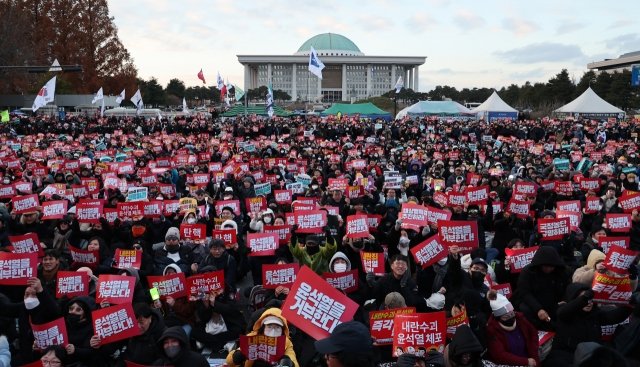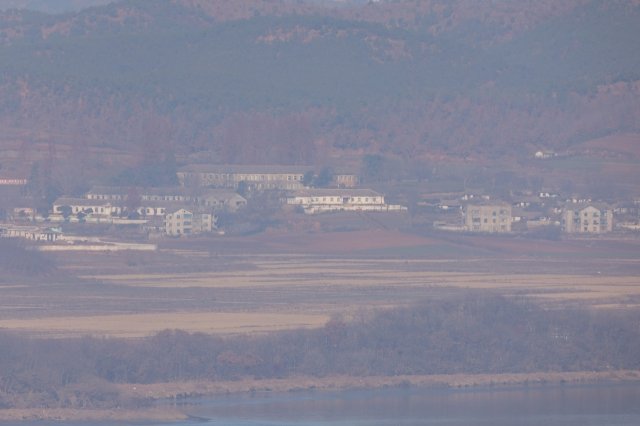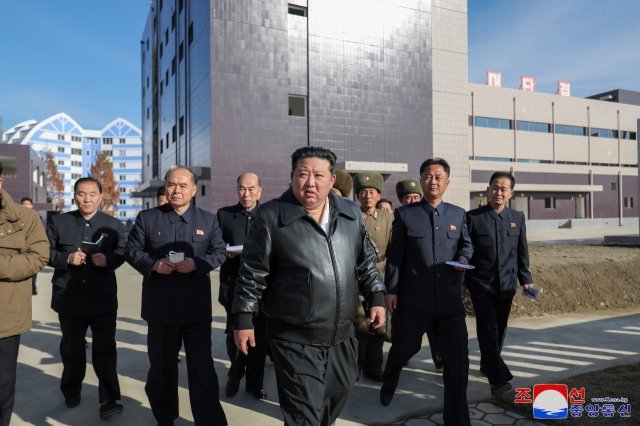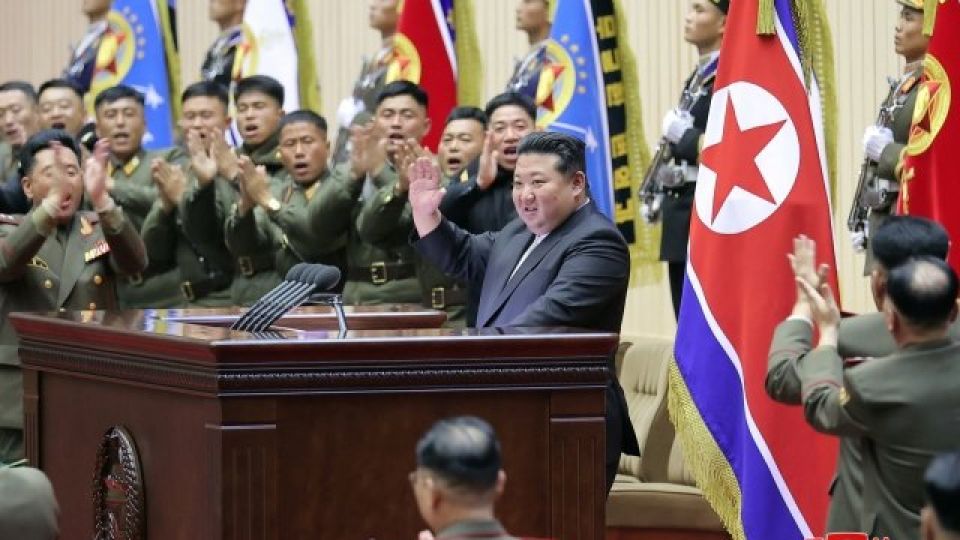December 9, 2024
SEOUL – North Korea is widely expected to remain silent amid South Korea’s political turbulence, defined by President Yoon Suk Yeol’s survival of an impeachment motion on Saturday, followed by the ruling party’s announcement on Sunday calling for his “orderly early resignation.” However, the prospect of Pyongyang exploiting South Korea’s perceived political vulnerabilities through provocations cannot be ruled out.
If Pyongyang remains tight-lipped, the decision will underscore North Korean leader Kim Jong-un’s strategic calculus that silence and restraint serve his regime’s interests more effectively than overt action. Such a stance acts on Kim’s public declaration of the two separate Koreas as “hostile states,” according to analysts in Seoul and Washington.
North Korea has still no response to Yoon’s late-night Tuesday declaration of martial law, which he framed as a measure to protect South Korea from “the threats of North Korean communist forces” and to “eradicate shameless pro-North, anti-state elements,” as well as its subsequent rescission by Yoon.
Neither domestic outlets such as Rodong Sinmun, an organ of the ruling Workers’ Party of Korea, and Korean Central TV nor external audience-oriented media like the Korean Central News Agency have reported on domestic turmoil in South Korea or its fallout as of Sunday afternoon.

A mass rally is held in front of the National Assembly building in western Seoul on Sunday, as the National Assembly is set to vote on an impeachment motion against President Yoon Suk Yeol. PHOTO: YONHAP/THE KOREA HERALD
Potential risk
North Korea likely considered the risks of internally addressing South Korea’s political upheaval, particularly the unintended spotlight it could cast on the nation’s democratic maturity and resilience. This dynamic was exemplified by widespread public protests amplifying opposition to the president, the National Assembly’s active role and the ruling People Power Party’s push for an “orderly early resignation of the president” in response to Yoon’s martial law declaration.
“The process from the declaration of martial law to its lifting and the pursuit of accountability actually speaks to the level of democratization in South Korean society,” Cha Du-hyeogn, director of the Center for Foreign Policy and National Security at the Asan Institute for Policy Studies in Seoul, told The Korea Herald on Saturday.
“In other words, Pyongyang has likely considered that the situation itself, above all, paradoxically underscored the compelling necessity of a South Korea-led unification based on liberal democracy.”
The Rodong Sinmun has been reporting on anti-Yoon protests and activities on its sixth page since May 2023, ending a hiatus that began in June 2020 following North Korea’s demolition of the inter-Korean liaison office in Kaesong. The frequency of such coverage has surged to near-daily since late November.
However, from the Thursday to Sunday editions — published after President Yoon’s martial law decree — North Korea’s media made no mention of political upheaval in South Korea or the ongoing anti-Yoon protests.

The North Korean border county of Kaepung in North Hwanghae Province remains as quiet as usual, as seen from the Odusan Unification Observatory in Paju, Gyeonggi Province, on Wednesday, following the declaration and subsequent lifting of martial law. PHOTO: YONHAP/THE KOREA HERALD
Silence serves interest
Mark Barry, associate editor emeritus at the International Journal on World Peace and a longtime observer of North Korea who met the late leader Kim Il-sung, dismissed predictions from some analysts that North Korea would take advantage of the political turbulence in South Korea by conducting provocations.
“I disagree with those who say the North would take advantage of the South at a time of domestic discord, such as this week and probably from now through early next year,” Barry told The Korea Herald on Saturday.
“The Kim family dynasty has preferred stability and predictability in the South, which they can then choose to manipulate or aggravate in a cost-effective way. Conversely, the DPRK stays far away from instability in the South because tampering with it could bring unpredictable, adverse, and risky consequences.”
The DPRK stands for the acronym of North Korea’s official name.
Peter Ward, a research fellow at Sejong Institute, said, “South Korean politics is engulfed in chaos. The North Koreans need not do anything but watch.”
North Korea appears to calculate that remaining silent during South Korea’s political turmoil offers greater strategic advantages than taking any provocative action.
“If North Korea were to attack in the West Sea or engage in other provocative behavior requiring a significant response, this may create a rally round the flag effect and distract from what has happened,” Ward told The Korea Herald. “It may actually give aid to the (Yoon) government they seemingly loath so much.”

North Korean leader Kim Jong-un inspects a factory under construction in Songchon, South Phyongan Province, on Nov. 19, 2024, in this photo provided by the North’s official Korean Central News Agency the following day. PHOTO: YONHAP/THE KOREA HERALD
Two-Koreas declaration
Observers noted that North Korea’s two-Koreas policy would be a key factor shaping its response to South Korea’s political turmoil, differing from its past reactions to similar situations.
Kim Jong-un’s pronouncement that the two Koreas are engaged in relations between “two hostile states” locked in a “belligerent state,” a stance first articulated during the 2023 year-end plenum and reiterated on numerous occasions, departing from the previous description as consanguineous or homogeneous.
“It’s not that North Korea is choosing not to comment, but that it cannot. From its position as a hostile state, separate from South Korea and lacking any sense of shared kinship, commenting on South Korea’s situation would amount to a logical self-contradiction,” Cha said.
For instance, Kim has openly voiced his disdain for South Korea.
“Even the mere thought of it (South Korea) sends shivers down my spine, and I have no desire to stand face-to-face with those people,” Kim said during his speech at the Kim Jong Un University of National Defense in October. “In the past, we used to talk about so-called liberating the South and unification by force a lot, but now we have no interest in this at all. Since declaring two states, that country no longer registers in our consciousness.”
Barry said Kim Jong-un is “least likely to tell his own people what is going on, if and until President Yoon is impeached and the decision upheld by the Constitutional Court.”
“But since the jettisoning of its unification policy, the North may only duly note the changes that are relevant to its society over time – such as a change in the name of a president,” Barry added.
Track record in reporting
North Korea has a track record of responding less significantly than expected to major political developments in South Korea. North Korea’s responses to South Korean political events, such as previous passages of impeachment motions at the National Assembly, have varied in timing and tone.
For instance, North Korean media reported on the Assembly’s impeachment motion against then-President Park Geun-hye in December 2016 within four hours. State media covered the Constitutional Court’s 2017 impeachment ruling against her in just two hours and 20 minutes, reporting that Park “would be under full-scale investigation as a common criminal.”
In sharp contrast, North Korean state media took two days to react to the rejection of then-President Roh Moo-hyun’s impeachment motion in May 2004, emphasizing that the outcome represented a “judgment by the people against hardline conservatives.”
When the impeachment motion against Roh was passed in March 2004, the Korean Central News Agency reported the news two days after the Assembly vote, shifting blame to the US for causing the political turmoil, issuing the statement.


